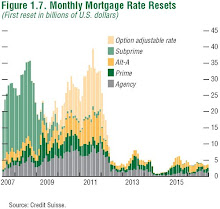In contrast to much of the negative news in the financial markets, there still remains a vibrant and exciting world of innovation in this country, primarily driven by the most extensive network of Venture Capitalists in the world.
One of those VC's, Mr. John Doerr of
Kleiner Perkins Caufield & Byers (KPCB) visited us at HBS yesterday.
His talk focused primarily on KPCB's interest in "Green Tech" ventures, but he also offered general advice for entrepreneurs and future venture capitalists. Here are my notes from the talk:
The best way to predict the future is to invent it.
If you can't invent it, fund it. But to fund the future, you first have to find it.At KPCB, they believe "Green" technology and energy efficiency are an important part of the future.
55 percent of energy in the global economy is wasted, primarily through heat emissions.
3 primary areas of focus for KPCB: Cars, coal, and efficiency.Cars:Fisker Automotive: producing a hybrid electric plug in. Gets about 100 mpg. 1 of 3 car companies in the portfolio.
6 renewable fuel ventures.
Amyris produces a key compound in anti-malaria drugs. This allows them to construct better fuels - molecule by molecule. Transportation fuels industry is a $1 Trillion market.
Coal:Biggest area of opportunity with few companies succeeding to date - carbon capture and sequestration for coal power plants is a massive market. Solve this problem!
Big fan of solar. Investment in
Miasole a producer of thin film solar-technology. Able to achieve 11% efficiency.
Conservation and efficiency:RecycleBank: Uses existing technologies such as Rfid. Has been able to increase recycle rates by 50 percent. They incentivize people to participate by giving people points which they can redeem at local businesses. Huge success and growing.
Policy Matters: Get states to change rules regulating utilities.
Interest in Green-tech is growing with $3B of VC investments in 2006 and $4B in 2007. This number is growing and will continue to grow.
However, Federal investment in green technology is less than 1 day of XOM's revenues.
To solve this problem, we need all the people to make the right outcome the profitable outcome and therefore the probable outcome.
If we are successful, "going green" will be the largest change on planet earth in the history of humanity.
Advice to HBS students:Hang out in engineering club at MIT. Join a KPCB, Greylock, or Sequoia portfolio company.
Think about ways to do: Green accounting, green marketing, green strategy.
Advice on becoming a great Venture Capitalist:Most have entrepreneurial experience. V.C. is a service business, so you need to understand your partners.
You have to learn by failing...Like crashing an F16, it will cost $30 mm the first time. Get operating experience. Spend time at MIT.
Definition of entrepreneur:Do more than anyone thinks is possible with less than anyone thinks is possible.
Restless. Never satisfied.
Difference between Mercenaries (Bad) vs Missionaries (good):Drive vs Passion.
Pitch vs Big Idea.
Opportunistic vs Strategic.
Focused on competition vs Focused on customers.
Aristocracy vs Meritocracy.
Deferred life plan vs Whole life plan.
Money vs Meaning and Money.
Success vs Success and Significance.
Consumer change:How will we change consumers minds to get them on board with "Green"?
Consumer change is hard. For example, we still import bottled water from Fiji.
Theory of change: We will not have a global solution until the U.S. leads. Leadership is up for grabs. All current platforms are unacceptable. Mainstream America does not have a sense of emergency or urgency here.
Politics are non linear.
Alliance for scientific communication.
WeCanSolveIt.Org.
Hewlett foundation.
Design to win. The looked at 5 regions of the world that matter. Within each region and each sector and figure out what needs to happen. Figure out how to make change happen (i.e. within power industry, utility commissions have power and 20 dudes really matter). Move public opinion and change the laws.
"Brown" companies will retaliate against "Green". Already have with things like: Coal is clean.
Coal and oil companies will do what they need to do to preserve the status quo.
We need to develop a Carbon accounting system. Carbon capture and sequestration will become standard in coal.
Future hope:His daughter's generation (she is 16) needs to get out of Facebook and into the face of politicians. We have numbed them into a set of career expectations.
The Energy movement is the first grassroots movement that has embraced 10 million people since Martin Luther King. He is glad Al Gore is out there and providing the leadership he is.
Future of Technology (if all his companies are successful):Browser will be transformed by sites like:
Cool Iris. We will have fully-immersive 3D technology.
We will be mobile.
A few hundred dollars will let you spit in a tube and have your DNA analyzed in hours.
We will reverse metastization of cancer.
Green fuels will be made from CO2.
General advice on balancing competing interests:Measure how much time you spend with each priority.
For him: Family comes first.
Home by 6 p.m. 20 days a month.
Measures how much time he spends with Partners, current CEO's, potential entrepreneurs, and community service (targets 15% of his time).
General Career Advice:Ideas are easy. What matters in life is execution. It takes a team to win. Think and speak on your feet.
Network constantly. Network each day for 10 minutes.
Find a mentor, ask them to be a mentor. Sustain that relationship.
Take risks. To ask permission is to seek denial.
Integrity is a binary state.
Life is long - its a marathon, not a sprint.
Call your mom once a week.


